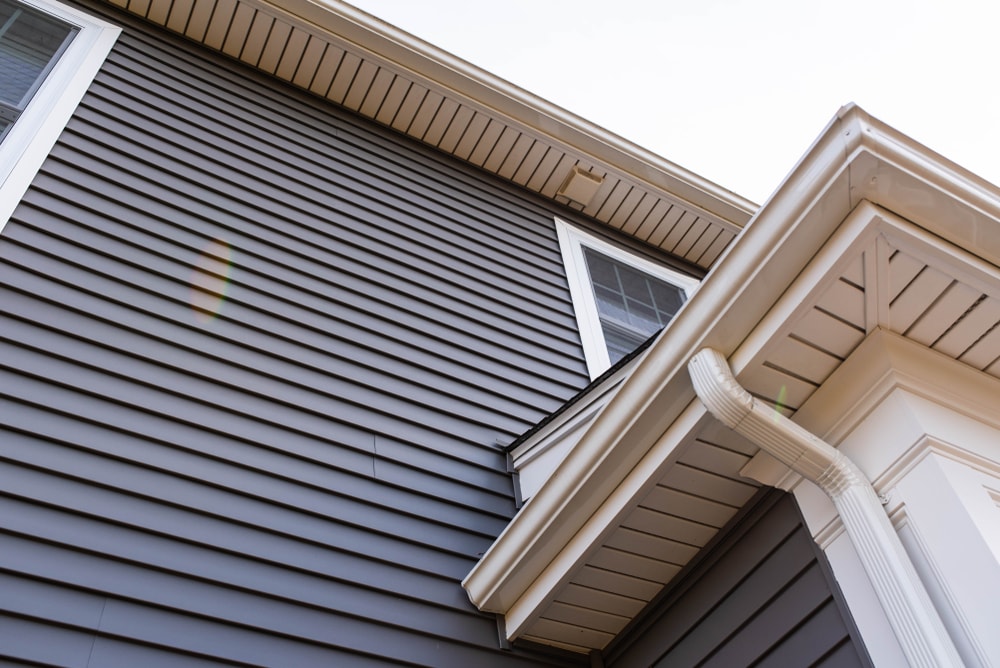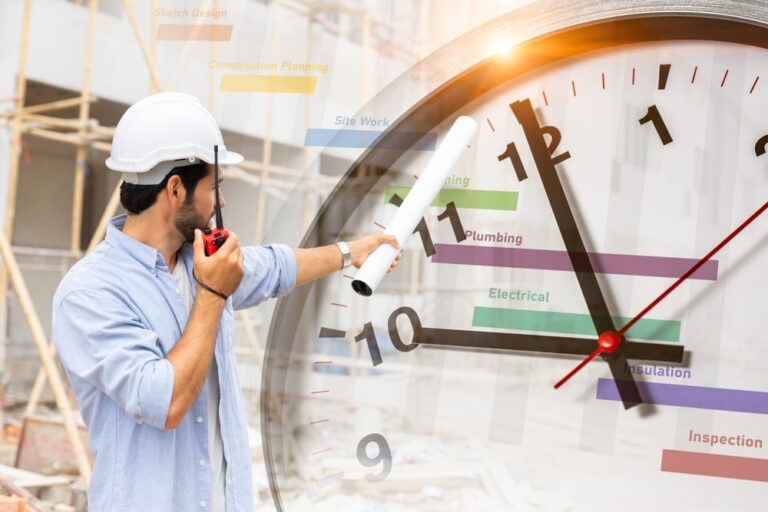As your home ages, you must take the necessary steps to protect your investment and keep it in prime condition. This ensures that it stays structurally sound as well as upholds its aesthetics. One of the home improvements you’ll eventually need to make is siding replacement.
Vinyl siding has become one of the most popular options for siding materials over the years. The durability of vinyl siding and minimal maintenance are just a few reasons why homeowners choose it for beautifying and fortifying their homes.
At Pinnacle Home Improvements, vinyl siding installation is one of our areas of expertise. We often get many questions about vinyl siding longevity, and this blog post aims to provide information to help you make the best decision for your home’s needs.
Introduction to Vinyl Siding
In the early 1960s, vinyl siding first hit the market as a more affordable and lower-maintenance material, giving homeowners another option alongside wood and aluminum. By the 1970s, it had quickly become in greater demand. Over time and now into the present day, as manufacturers perfected these materials to provide greater durability, color selections, and styles, it’s regarded as one of the top choices for siding materials.
Homeowners often opt for vinyl siding as it’s a budget-friendly material that can provide the same look of wood, stone, or brick for a fraction of the cost. It’s also easier to maintain since it doesn’t need to be painted or stained. The material is naturally resistant to insects, rot, and rust, allowing homeowners to have fewer worries about caring for their homes.
There are many colors and styles, it endures a variety of weather conditions, and when installed with insulation, it improves energy efficiency for homes. In short, there are many benefits to homeowners when they choose vinyl as their siding material. However, it doesn’t last forever, much like any other siding option, though certain factors can play a role in how long vinyl siding lasts.
Factors Affecting Vinyl Siding Lifespan
An array of factors can impact the longevity of vinyl siding:
Climate and Environmental Exposure
If you live in an area that sees extreme heat or cold, vinyl siding will be more prone to expanding and contracting. It won’t matter if this only happens occasionally, though when it’s a prolonged event, these temperature fluctuations can wear on the material, making it less durable over time.
Another concern is the damage caused by the sun’s UV rays. Vinyl siding may fade, become discolored, or take on a brittleness over the years. Problems may also arise with frequent precipitation or humidity, as moisture and water damage can get behind vinyl siding panels.
However, it’s less likely for this to happen when it’s installed professionally. Still, homeowners should be vigilant in checking their vinyl siding each season to look for cracks, holes, dents, and other issues that could compromise structural integrity if they’re not repaired promptly.
Quality of Installation
Today’s vinyl siding locks the panels together with greater ease, but it’s still something that you should let a professional install. It can be tricky to install vinyl siding around windows, too. If the alignment is off, it can allow water infiltration. Professionals know how to make the proper allowances for vinyl siding to expand and contract, which will prevent issues down the road for water damage.
Maintenance Practices
Vinyl siding is incredibly easy to maintain, though that doesn’t mean it should be ignored. If you have vinyl siding, you should clean it off periodically to keep dirt, grime, and mildew from building up and causing damage. All you need is a hose and a nozzle attachment, though make sure you use low pressure for a gentle touch.
Homeowners should always make a habit of checking their vinyl siding at least once a year, though ideally, as the seasons change. In this way, it’s easy to spot small cracks, dents, or other damage and get them fixed before they worsen, prolonging the lifespan of your siding.
Quality of Materials Used
Like any material, vinyl siding comes in a variety of grades. Generally, the most basic option is about $2 per square foot. While you don’t have to shell out for the top-of-the-line vinyl materials, choosing one that’s a higher grade means it’s thicker, offers better UV protection, and will last longer.
Another reason to have vinyl siding professionally installed is that siding contractors will work with reputable manufacturers. It’s easier for them to get better prices from suppliers for these top-quality materials, which means you can get better siding for your home that provides greater durability and longevity for less.
Typical Lifespan of Vinyl Siding
Vinyl siding tends to average a lifespan of 20 to 40 years, though it depends on the grade you choose for your home. Cheaper options will be on the shorter end of that estimate, while quality vinyl siding will last longer. The factors previously listed for weather, installation, and maintenance may shorten or extend the lifespan.
If you’re wondering how to tell whether or not it’s time to replace your siding, several signs can help you know:
Visible Damage
If you have visible damage in a small area on siding that isn’t all that old, you can most likely replace the panels. However, when you start seeing lots of cracks and holes, or the panels are blistering and warping, moisture can penetrate and cause bigger problems. It may not be prudent to try to repair it at that point and to focus on planning siding replacement.
Loose or Missing Panels
Heavy winds, general wear and tear, or improper installation can lead to loose panels or even panels that have completely come off the side of your home. The longer you leave your home like this, the more likely it is that you’ll incur more extensive damage.
Faded Vinyl Siding
With exposure to UV rays, lower grades of siding will eventually fade in the sun. This doesn’t always mean you need to replace it, but it helps to have a professional assess whether or not it’s still providing proper protection for your home.
Age
If the vinyl siding on your home is 20 years old or older, even if it still looks good, you should prepare to invest in vinyl siding replacement. The material will be less adept at protecting your home from the elements, and you’ll want to make this home improvement to your exterior before it becomes a problem that impacts structural integrity.
Tips for Extending the Lifespan of Your Vinyl Siding
Things you can do to promote a longer lifespan for your vinyl siding include:
Clean Your Vinyl Siding Regularly
Vinyl siding is such a low-maintenance material that you may only need to clean it once a year, depending on the air quality in your local area. If you notice it looks dusty or has dirt on it, you can gently wash it off with low pressure from your garden hose. For stubborn buildup, you can take a soft cloth with mild soap and gently wipe it away.
Never use any abrasive cleansers or harsh chemicals on vinyl siding. You shouldn’t use a pressure washer on it unless you have a low and gentle setting that this material can tolerate, or you could cause damage.
Inspect Your Siding Regularly
Once a year, take a look at your siding by walking the perimeter of your home. If any severe weather events occur, you should also look for any holes, cracks, or loose panels. By being proactive, you can spot the signs of minor damage and make repairs before it’s too late.
Make Prompt Repairs to Your Siding
If you find any damage to the siding, don’t delay in making repairs. The longer it remains with damage, the more likely water damage is to occur.
Take Steps to Prevent Damage
You can’t stop hail or heavy winds from blowing through town, though you can take some preventative actions to prevent siding damage. Make sure you trim your shrub and nearby trees to keep them from rubbing up against the siding. You should also keep your grill, fire pit, or any other heat source far enough away from your home.
Advantages of Choosing Pinnacle Home Improvements
Pinnacle Home Improvements provides expert siding installation using durable vinyl siding materials. Our skilled team provides exceptional craftsmanship and knows how to properly install siding, allowing it to expand and contract, preventing you from having water intrusion issues.
We also offer long-term warranties that guarantee our work and provide you with additional peace of mind over the years. We take great pride in ensuring our clients have a first-class experience before, during, and long after the installation of their new siding. Contact us today for a free quote, and make sure you read up on our siding & exterior archives to learn more about vinyl siding.














